An average hen lays about 260 to 280 eggs in a year. As such, having a couple of hens can promise considerable profit. But as a responsible farmer, you also want to ensure that production does not lead to discomfort for your hens. So is it painful for chickens to lay eggs?
This article will cover
- How a Chicken Forms and Lays Eggs?
- The “Egg Song”
- Do Chickens Feel Pain When Laying Eggs?
- Discomforts Chicken Might Felt While Laying Eggs
- How to Care for Hens That Are Laying Eggs?
- What to Do If Your Hens Have Stopped Laying Eggs
How a Chicken Forms and Lays Eggs?
First, let’s talk about how hens form and lay eggs. When a female chick is born, it carries thousands of chicken ova or immature yolks inside its ovary. Once it reaches 20 to 24 weeks, the egg formation and laying process will be triggered when light enters the hen’s eye. Whether natural or artificial, the light will activate the hen’s pineal gland and cause it to release an egg from its ovary.
This egg, which is now a yolk, travels from the ovary to the infundibulum, which is the part where the hen’s oviduct begins. A hen typically takes half an hour to complete this process. The yolk will go through various parts of the hen’s reproductive tract to facilitate egg formation.
Once the yolk reaches the oviduct, it will begin forming its egg white, starting with the vitelline membrane, a transparent casing that protects the yolk. When it reaches the hen’s magnum, additional proteins called albumen will be added to the egg white. The developing egg will then continue to travel down the oviduct, spinning until it forms the chalazae or the stringy parts of the egg.
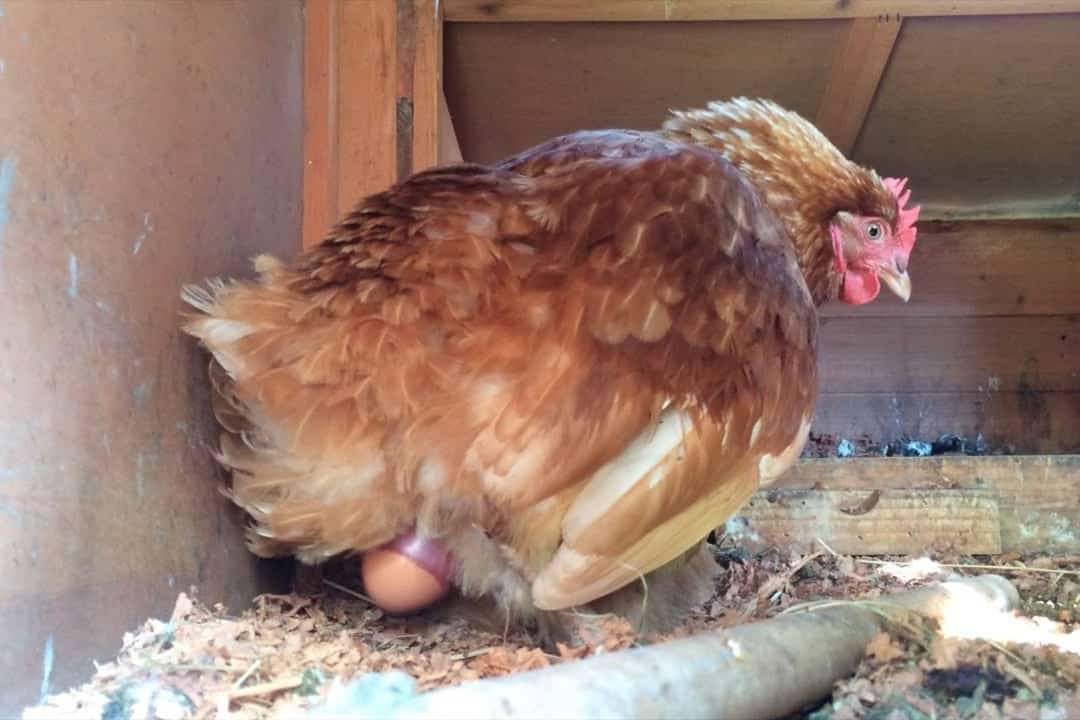
Next comes egg shape formation. This part happens in the isthmus, where more membranes are added to the albumen until it forms an oval. It usually takes an hour for this phase to be completed, after which the developing egg will travel down to the hen’s shell gland.
As its name denotes, the shell gland is where the hen creates the eggshell. The shell protects the yolk from harmful bacteria, which is why it’s the part that takes the longest to complete. The entire process, including the formation of the shell and the addition of eggshell color to the developing egg, generally takes about 18 to 20 hours.
Once the egg is ready, the hen pushes it from its shell gland into the cloaca. The cloaca is the space inside the vent, the posterior opening where hens defecate and lay eggs. A hen typically lays an egg approximately every 24 to 26 hours.
To better visualize this whole process, watch this video:
The “Egg Song”
Central to the process of hens laying eggs is the song that they sing when they do. While it can be argued whether it qualifies as a “song,” hens make a loud screeching noise as they lay eggs. This is called the “Egg Song.”
There are many possible explanations for why hens cackle when they are laying eggs, and these include:
They’re announcing their location to the rest of the flock. A common reason why hens sing the Egg Song when they’re inlay is that they want to announce where they are to the rest of the flock.
In the wild, hens may wander off to lay eggs, and the noise they make could serve as an unintentional signal to other chickens of their location. Additionally, it can signal other hens about where the nest is, as hens tend to build communal nests.
They’re trying to distract predators. Another potential explanation is that the Egg Song acts as a distraction from potential predators. While it is loud, the sound can fool other animals and even humans as to the exact location where it’s coming from.
It’s vital as hens can be vulnerable to predator attacks when laying eggs. According to a study that explored this specific topic across 11 organic or free-range farms, about 4% of hens in these farms died from being attacked by a predator.
They feel proud that they’re laying eggs. Additionally, hens may cackle to communicate their pride at having been able to lay eggs. While it is normal behavior for these animals, it is also a source of distinction that may accord a higher position in the pecking order for hens.
Hens may also sing the Egg Song to encourage roosters to mate with them. Often, a hen that has just laid an egg will mate with a rooster.
Because of the volume and intensity of the Egg Song, other people think that it’s a call for help. Is the song a way for hens to voice their pain and discomfort while laying eggs?
Do Chickens Feel Pain When Laying Eggs?
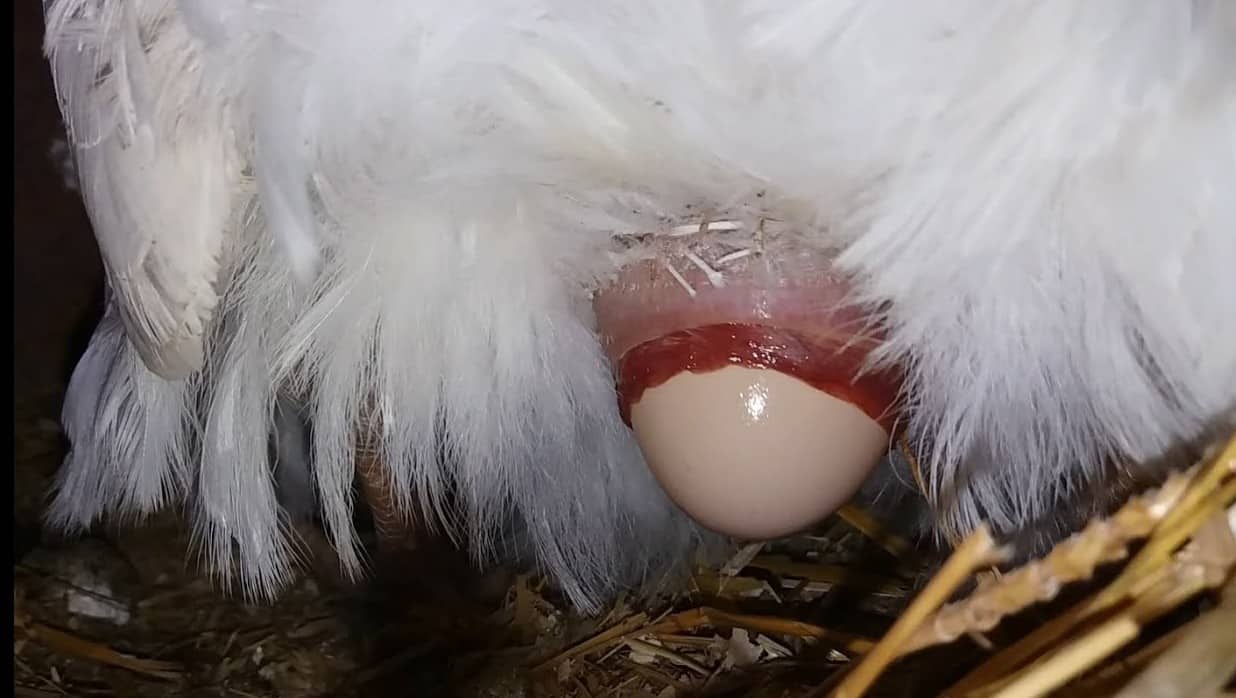
To answer this question, it is first necessary to establish whether chickens feel pain.
Like most living organisms, chickens have skin receptors that respond to various sensations – including pain. Across many studies, researchers have found that chickens display signs when they are in pain.
In one such study, for instance, it was found that chickens who have suffered damage to their beaks, a highly-sensitive organ that contains many nerve endings, tend to cover the end of their beaks under their wing or stop pecking and preening.
Additionally, another study found that hens, in particular, feel empathy. Signs that they are in distress include alertness, increased heart rates, and decreased eye temperatures.
When it comes to egg laying, the specific part that is involved is called the cloaca. This also has nerve endings, which can suggest that it will trigger sensations when it is used, like when a hen lays eggs.
As such, it is believed that egg-laying can be painful to some chickens. In fact, two specific factors can make the process distressful for particular hens.
Egg Size
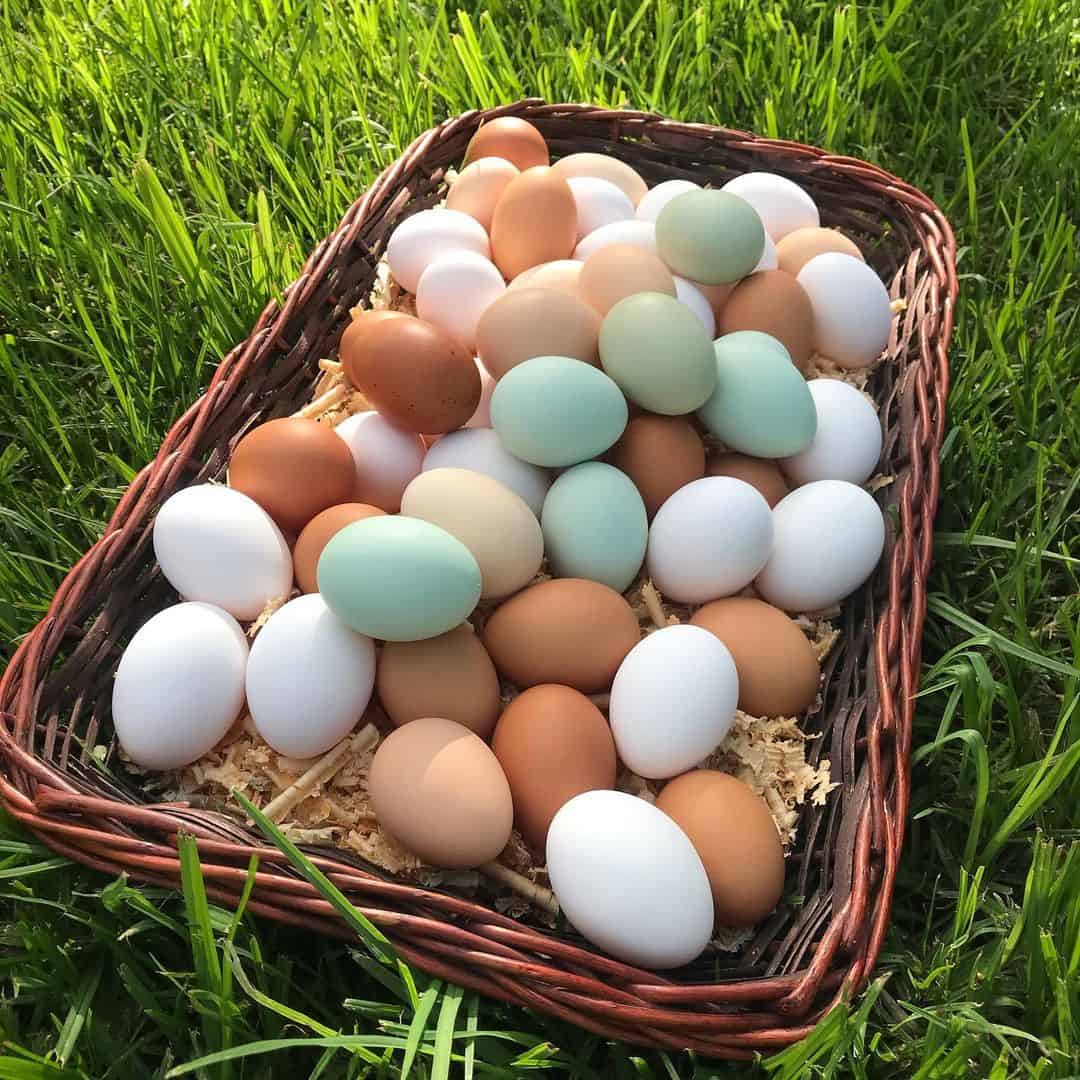
Eggs that are bigger than usual may cause pain to hens. Sometimes, this happens when a hen lays an egg with two yolks. With more than one yolk to develop, the normal egg formation process might also require more albumen or a bigger shell.
Hen Age
Younger hens may find the process more challenging when first starting to lay eggs, but severe symptoms like wheezing, gasping, and bleeding are not typical and could suggest a health problem. Fortunately, the process is believed to get better for these younger hens after the first time.
Discomforts Chicken Might Felt While Laying Eggs
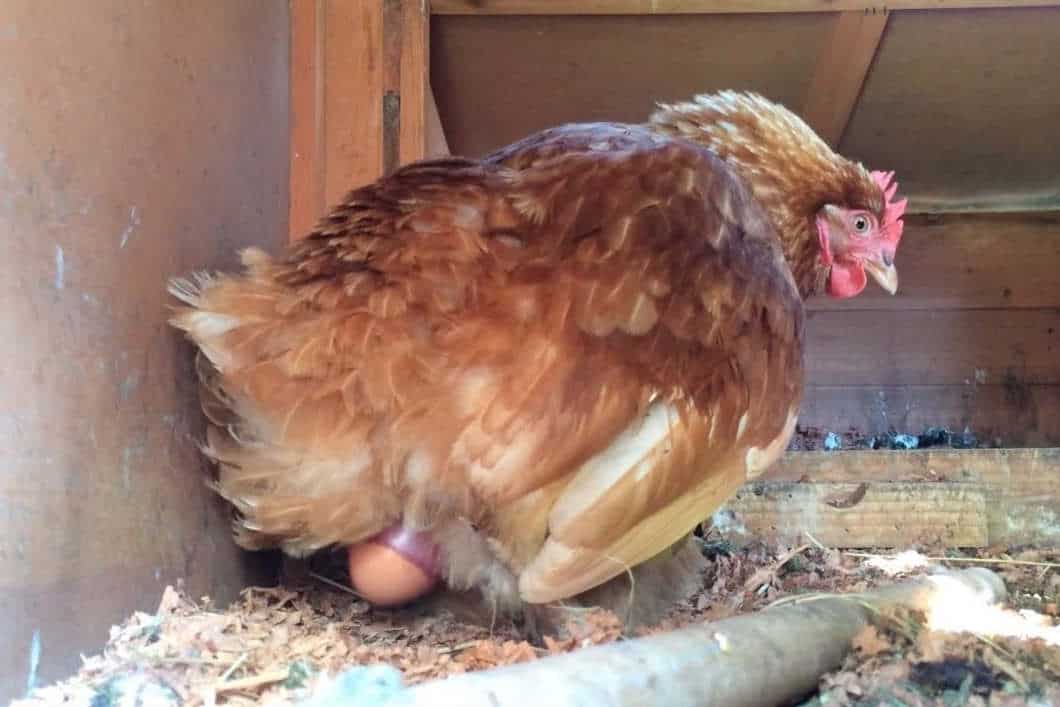
Muscle Contractions
When chickens are laying eggs, they may feel muscle contractions and pressure around the vent area. While it’s normal for hens to experience this, rest assured that these sensations are not thought to be painful or cause any distress. However, if your chicken has past injuries on the hind area, egg laying might cause some discomfort.
Pain Receptors
Just like us, chickens are equipped with senses that allow them to feel pain. Pain receptors called nociceptors can be found throughout their bodies. However, in contrast to other parts of the chicken’s body, there are no pain receptors in its reproductive system. So when a hen lays an egg and its muscles contract or pressure is placed on her vent area – it doesn’t hurt! But let’s not forget that even though the laying process isn’t painful for hens, they still experience discomfort if they’re injured or feeling distressed elsewhere on their bodies.
Pressure on the Vent
When hens lay eggs, some pressure on their vent is normal as the egg makes its way out of their body through the oviduct. It’s a natural part of the process and doesn’t cause any pain to chickens since they’re not physiologically sensitive in that area.
However, there are times when hens might show signs of strain or make some noise while laying an egg. This might mean that it takes a little more effort than usual for them to pass the egg through their reproductive system, causing temporary discomfort during this time. But again, it’s important to note that overall, laying eggs isn’t painful for your hens!
How to Care for Hens That Are Laying Eggs?
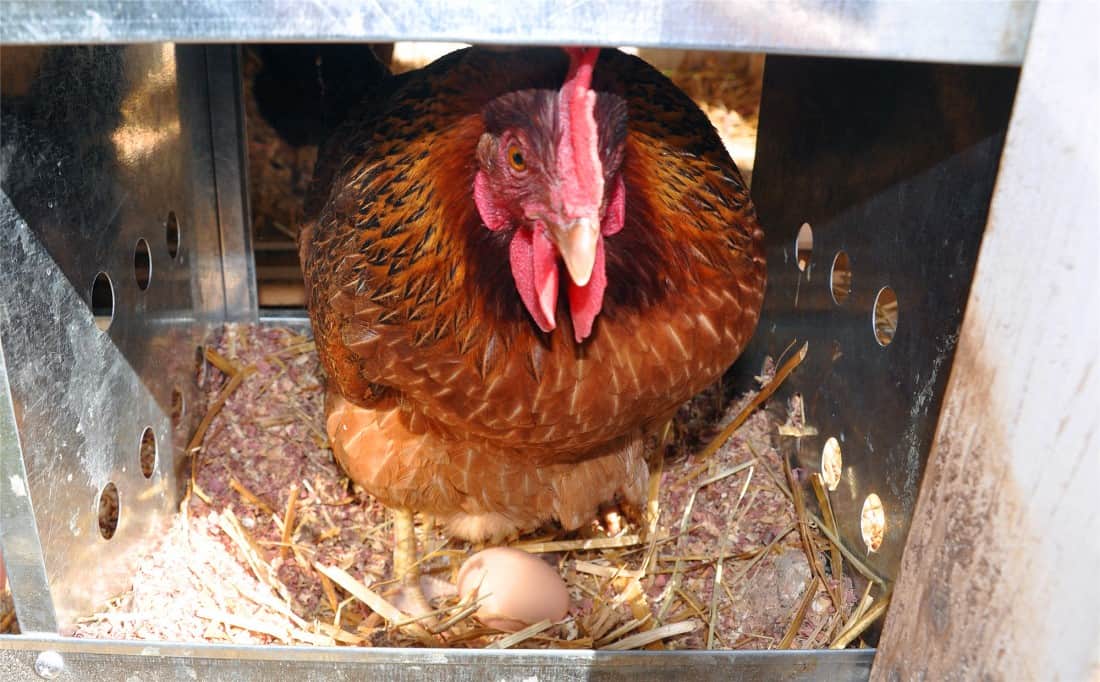
While chickens generally do not feel pain when laying eggs, it still pays to ensure they are cared for throughout their egg-laying life. Peak production time for a hen is within the first two years, and it can continue to lay eggs for as long as ten years.
This section outlines some guidelines for adequately caring for hens that are laying eggs.
Daily Care
Hens must have water and food every day. The eggs should be picked up at least twice a day. Additionally, they should be let out of their coop every morning and returned at dusk. Finally, their housing or pen must be kept clean and follow a weekly sanitation plan.
Diet
For optimal health, chickens need a balanced feed that contains minerals, protein, and vitamins. Laying hens, in particular, should also have crushed oyster shells and grit, especially when ready for laying.
The amount depends on the hen, but typically, a hen that weighs about 6 pounds can consume about 3 pounds of feed every week. This may slowly decrease in the summer and increase during winter.
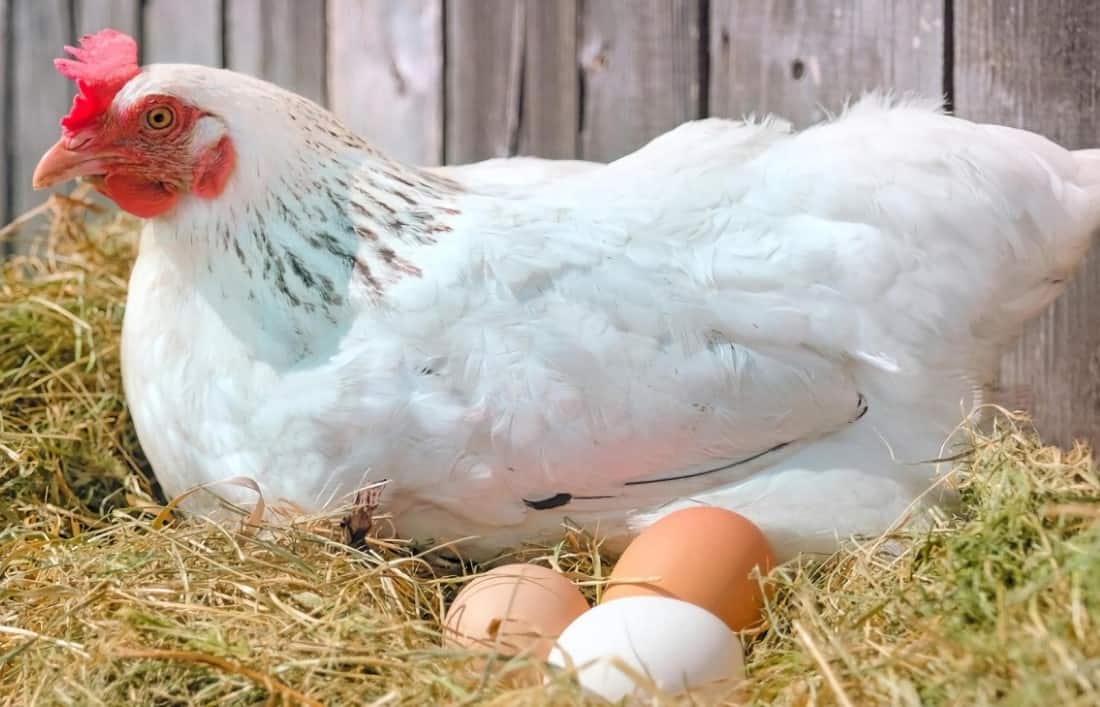
Coop
As they have jungle birds for ancestors, chickens need a place to roost in their coop. As such, their housing should have elevated areas where they can perch.
The coop should also have ventilation, heating, and insulation. Finally, it should be well-lit. Laying hens, in particular, must have access to light – natural or artificial – for at least 17 hours every day.
Sanitation
Cleaning out the coop should be done at least once a week. Pay particular attention to specific components such as feeders and waterers, as these can trap dirt and debris and potentially cause sickness to your hens.
Additionally, schedule an annual thorough sanitation procedure. Replace broken parts of the coop, and monitor your hens for optimal health.
What to Do If Your Hens Have Stopped Laying Eggs
There are many possible reasons why hens may stop laying eggs. The first is inadequate light. If the hen can’t access light for at least 17 hours, the process that controls egg formation will be negatively affected.
Also, check if the coop conditions are causing stress to your hens. Common reasons for stress include overcrowding, noise, insufficient warmth or ventilation, and sickness.
Speaking of sickness, monitor your hens’ diet. They should be fed a steady stream of complete feeds to ensure they are in peak egg-laying form.
Summary
In conclusion, if you’ve been wondering, “Is it painful for chickens to lay eggs?” the short answer is no. This is generally true unless they are very young or laying exceptionally large eggs. However, you can still make the process comfortable by ensuring they receive proper care.
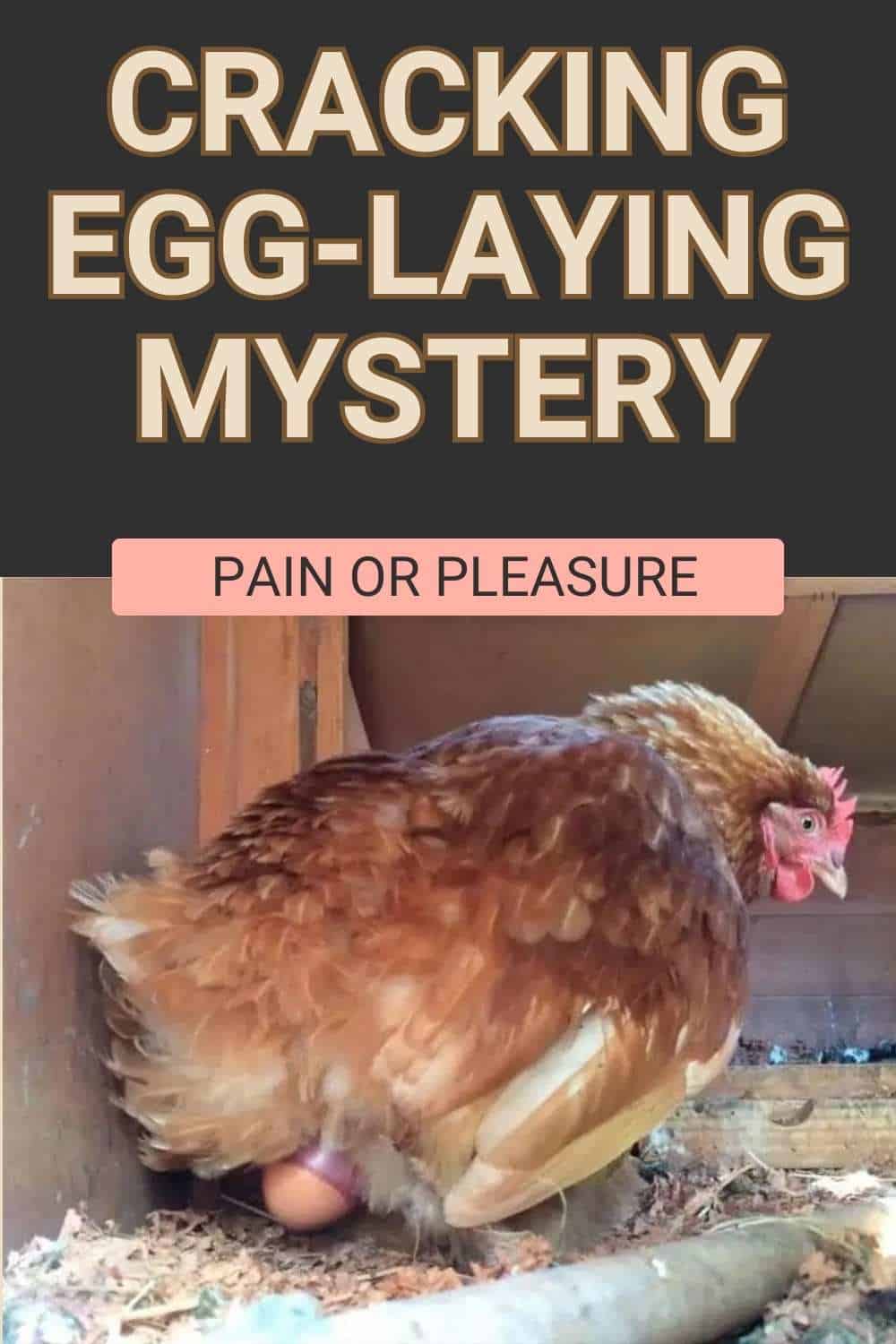

Joseph Hudson has been raising chickens for over 15 years. In 2018, he completed the Agriculture & Natural Resources program at Mt. San Antonio College. He currently raises over 1400 chickens on his 7.5-hectare farm. He keeps sharing his experience on raising healthy and happy chickens on Chicken Scratch The Foundry.
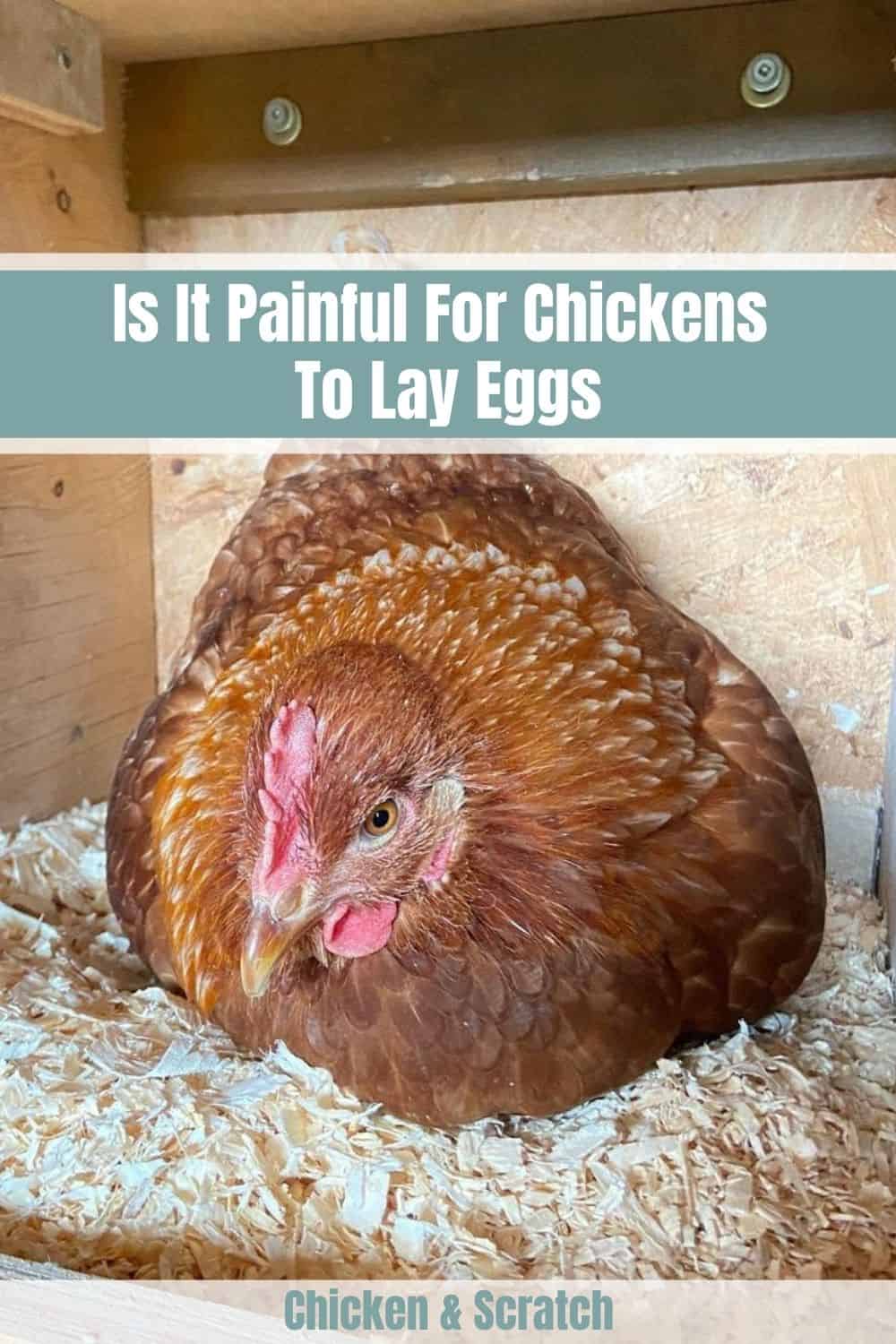
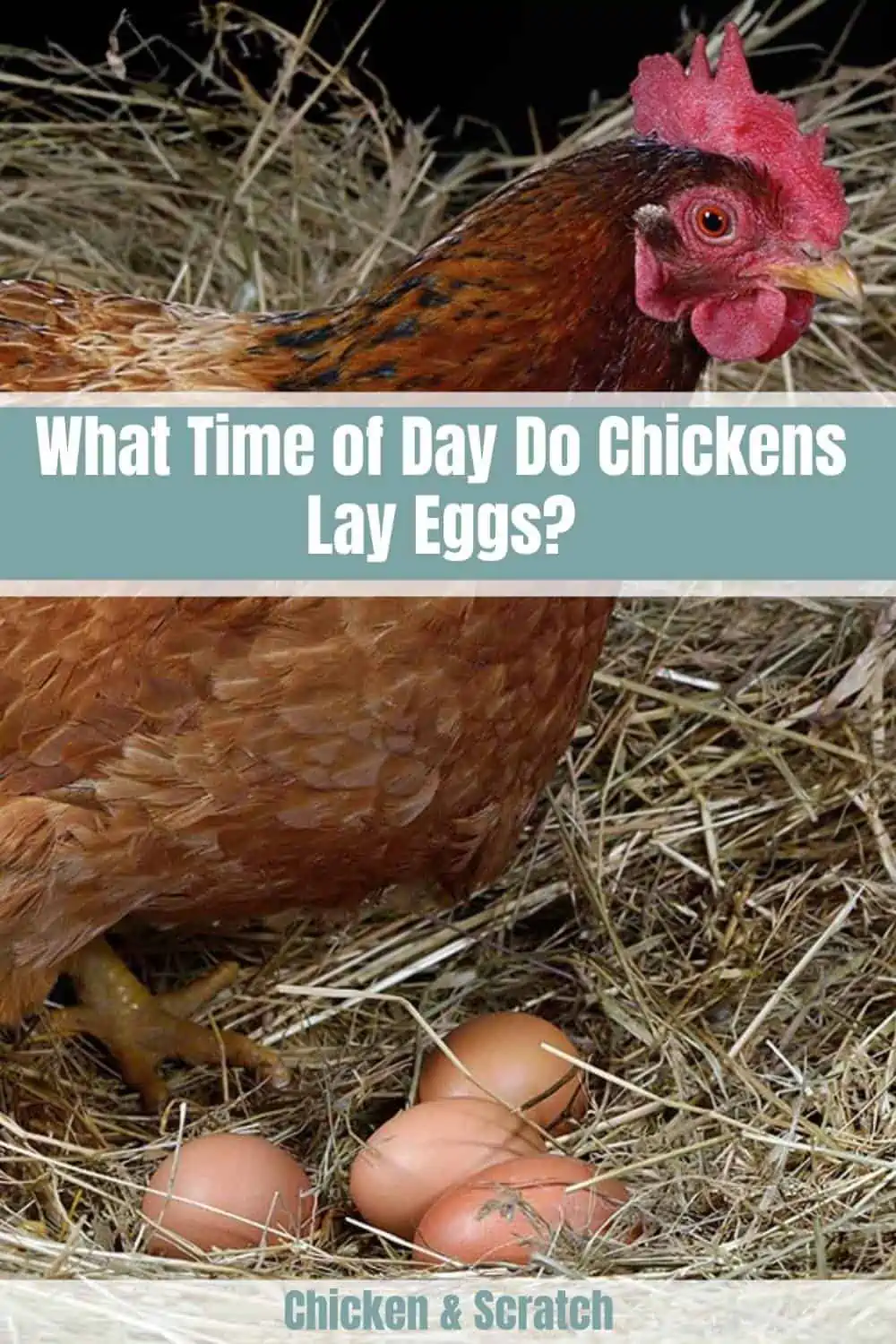







Qingap sytts jamepang koloaa viiis!! Zanxu!